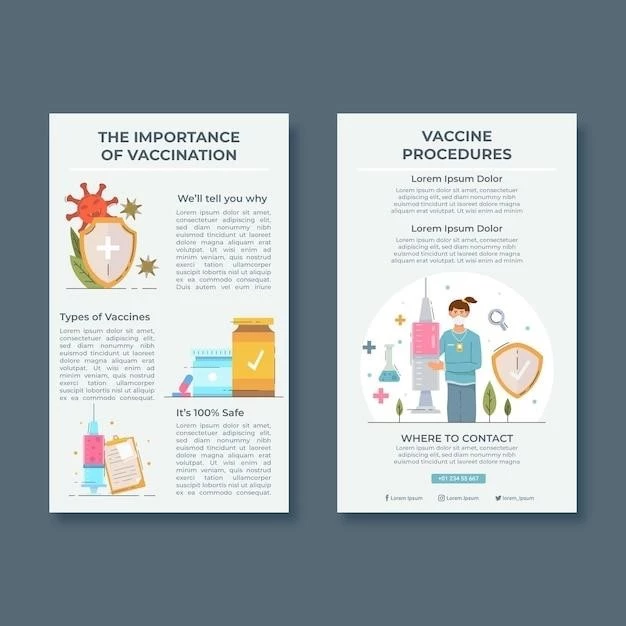When it comes to the uses and benefits of Warfarin, it is crucial to understand its role in preventing blood clots and reducing the risk of stroke and heart attack. However, it’s essential to be aware of the potential side effects and risks associated with this medication.
Introduction to Warfarin
Warfarin is a medication known as an anticoagulant, commonly referred to as a blood thinner. It works by inhibiting the body’s ability to form blood clots, reducing the risk of strokes, heart attacks, and other blood clot-related conditions. Warfarin is often prescribed to individuals with conditions such as atrial fibrillation, deep vein thrombosis, and pulmonary embolism.
It is important to follow your healthcare provider’s instructions carefully when taking Warfarin, as the dosage may vary based on individual factors such as age, weight, and medical history. Regular monitoring of your blood levels may be required to ensure the medication is working effectively and safely.
Warfarin should be taken exactly as prescribed, typically once a day at the same time. Missing doses or taking more than prescribed can lead to serious complications. It is also advisable to inform your healthcare provider about any other medications, supplements, or herbal remedies you are taking, as they may interact with Warfarin and affect its efficacy.
Understanding the uses and benefits of Warfarin, along with the potential side effects and risks, is essential for managing your condition effectively and reducing the risk of complications. If you have any concerns or experience any adverse effects while taking Warfarin, consult your healthcare provider immediately for guidance.
Warfarin⁚ Uses and Benefits
Warfarin is primarily used to prevent and treat blood clots in conditions such as deep vein thrombosis (DVT), pulmonary embolism, and atrial fibrillation. By inhibiting the clotting process, Warfarin helps reduce the risk of strokes, heart attacks, and other thrombotic events.
One of the key benefits of Warfarin is its effectiveness in preventing the formation of harmful blood clots, which can lead to serious cardiovascular complications. It plays a crucial role in managing and reducing the risk of thromboembolic events in individuals at high risk.
Additionally, Warfarin is often prescribed to patients who have undergone certain medical procedures, such as heart valve replacement or orthopedic surgery, to prevent clot formation. The medication’s ability to maintain blood flow and prevent blockages is essential for ensuring optimal recovery and health outcomes.
Understanding the uses and benefits of Warfarin is essential for individuals prescribed this medication, as it plays a critical role in managing chronic conditions and preventing life-threatening complications. It is important to adhere to your healthcare provider’s recommendations and maintain regular monitoring to ensure the medication’s effectiveness and safety.

Warfarin⁚ Side Effects and Risks
While Warfarin is effective in preventing blood clots, it also carries potential side effects and risks that individuals should be aware of. Common side effects include bruising, bleeding gums, and prolonged bleeding from cuts. In some cases, serious bleeding within the body can occur, leading to complications.
It is essential to seek medical attention if you experience symptoms such as unusual bruising, blood in urine or stools, or persistent headaches, as these could indicate serious bleeding. Warfarin can also interact with certain foods, alcohol, and other medications, affecting its efficacy and increasing the risk of side effects.
Other risks associated with Warfarin include the possibility of excessive bleeding, especially in individuals with a history of gastrointestinal ulcers, high blood pressure, or liver disease. It is crucial to follow your healthcare provider’s instructions regarding dosage and monitoring to minimize these risks.
To reduce the likelihood of adverse effects, it is important to inform your healthcare provider about any existing medical conditions, allergies, or medications you are taking before starting Warfarin. Regular monitoring of your blood levels and adherence to dietary recommendations can help mitigate the risks associated with this medication.
Warfarin⁚ Administration and Dosage
Proper administration and dosage of Warfarin are crucial for its effectiveness and safety. The medication is typically taken orally, once a day, at the same time each day. It is essential to follow your healthcare provider’s instructions regarding dosage and frequency closely.
The dosage of Warfarin is individualized based on factors such as your medical condition, age, weight, and response to the medication. Your healthcare provider will determine the appropriate dose for you to achieve the desired anticoagulant effect while minimizing the risk of bleeding.
It is important not to miss doses of Warfarin, as this can increase the risk of blood clots or other complications. If you forget to take a dose, contact your healthcare provider for guidance on how to proceed. Do not double doses to make up for a missed dose.
Regular monitoring of your blood levels, typically through INR (International Normalized Ratio) tests, is necessary to ensure that Warfarin is working effectively and that your dose is appropriate. Be sure to attend all scheduled follow-up appointments and inform your healthcare provider of any changes in your health status.
Warfarin⁚ Drug Interactions
Warfarin can interact with various medications, supplements, and foods, affecting its efficacy and safety. It is important to consult your healthcare provider before starting any new medication while taking Warfarin to avoid potentially harmful interactions.
Common medications that may interact with Warfarin include antibiotics, nonsteroidal anti-inflammatory drugs (NSAIDs), antifungal agents, and antiplatelet drugs. Herbal supplements such as ginkgo biloba, garlic, and ginger can also interact with Warfarin, increasing the risk of bleeding or reducing its effectiveness.
Foods rich in vitamin K, such as leafy greens, can interfere with Warfarin’s anticoagulant effect. Maintaining a consistent intake of vitamin K-containing foods is essential to ensure the stability of your Warfarin dosage. Alcohol consumption should also be moderated, as it can interact with Warfarin and increase the risk of bleeding.
It is crucial to inform all healthcare providers involved in your care, including dentists and specialists, about your Warfarin therapy to prevent potential drug interactions. Your healthcare provider may adjust your Warfarin dose or monitor your blood levels more closely if you start or stop any medications while taking Warfarin.
Warfarin⁚ Monitoring and Precautions
Regular monitoring and taking precautions while using Warfarin are essential to ensure its effectiveness and minimize risks. Your healthcare provider will conduct frequent blood tests, often using the International Normalized Ratio (INR) measurement, to monitor your response to the medication.
It is crucial to attend all scheduled appointments for INR monitoring to assess the anticoagulant effect of Warfarin. Based on your results, your healthcare provider may adjust your dosage to maintain the target INR range recommended for your condition.
Precautions to take while on Warfarin include avoiding activities that may increase the risk of bleeding, such as contact sports or using sharp objects like razors. Inform healthcare providers, including dentists, about your Warfarin therapy before any procedures to prevent excessive bleeding.
Be cautious with over-the-counter medications, as some of them can interact with Warfarin. Always consult your healthcare provider or pharmacist before taking any new medications or supplements to prevent adverse interactions. In case of bleeding or unusual bruising, seek immediate medical attention.
Warfarin⁚ Indications and Clinical Uses
Warfarin is commonly prescribed for various medical conditions where blood clotting poses a risk to health. One of the primary indications for Warfarin is atrial fibrillation, a heart rhythm disorder that increases the risk of stroke due to blood clots forming in the heart.
In individuals with artificial heart valves, Warfarin is often necessary to prevent clot formation on the valve surfaces, reducing the risk of valve-related complications. For patients with deep vein thrombosis (DVT) or pulmonary embolism, Warfarin helps prevent the formation or enlargement of blood clots.
Patients undergoing major surgeries, such as hip or knee replacements, may receive Warfarin to prevent blood clots from developing in the legs or traveling to the lungs. It is crucial in these cases to balance the risk of clot formation with the risk of excessive bleeding while on anticoagulant therapy.
Understanding the specific clinical uses of Warfarin for your medical condition is crucial for optimal treatment outcomes. It is important to adhere to your healthcare provider’s recommendations, attend regular monitoring appointments, and be vigilant for any signs of bleeding or clotting complications while on Warfarin therapy.
Conclusion
In conclusion, Warfarin plays a crucial role in preventing blood clots and reducing the risk of serious cardiovascular events in individuals with various medical conditions. Understanding the uses, benefits, side effects, and risks associated with Warfarin is essential for safe and effective treatment.
Proper administration, dosage monitoring, and precautions are key to maximizing the benefits of Warfarin therapy while minimizing potential risks. By following your healthcare provider’s guidance, attending regular monitoring appointments, and being proactive about drug interactions and lifestyle considerations, you can better manage your condition and improve your health outcomes.
Whether you are taking Warfarin for atrial fibrillation, deep vein thrombosis, heart valve replacement, or other clinical indications, it is paramount to prioritize safety, adherence, and open communication with your healthcare team. Together, you can work toward achieving the desired anticoagulant effect of Warfarin while minimizing the chances of complications.
Remember, if you have any concerns or experience unexpected symptoms while on Warfarin, do not hesitate to reach out to your healthcare provider for guidance and assistance. Your active participation in your treatment plan is vital for ensuring the best possible results and maintaining your overall well-being.
Additional Resources
For additional information on Warfarin, its uses, side effects, and precautions, consider consulting the following resources⁚
- American Heart Association⁚ Offers valuable insights on anticoagulant therapy and its role in cardiovascular health.
- Centers for Disease Control and Prevention (CDC)⁚ Provides guidelines on blood clot prevention and management.
- National Institutes of Health (NIH)⁚ Offers in-depth articles on anticoagulant medications and their clinical applications.
- Mayo Clinic⁚ Features comprehensive information on Warfarin therapy, including dosage recommendations and potential interactions.
- Your Healthcare Provider⁚ Your primary care physician or specialist can provide personalized guidance tailored to your specific medical needs and concerns;
Remember to discuss any questions or uncertainties about Warfarin with your healthcare provider or pharmacist, as they can offer personalized advice based on your individual health profile and medication regimen. Stay informed and proactive in managing your anticoagulant therapy for optimal treatment outcomes.
